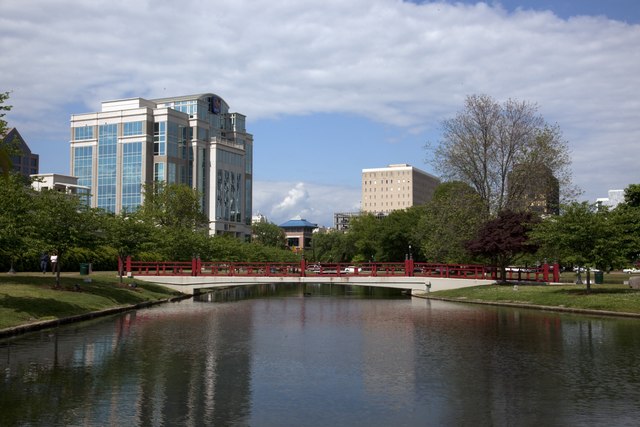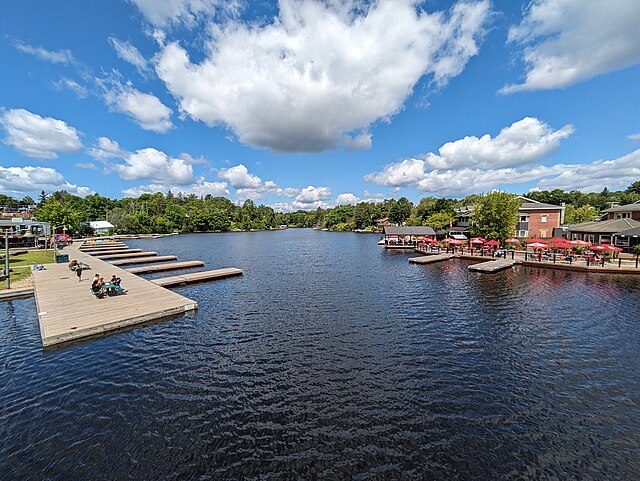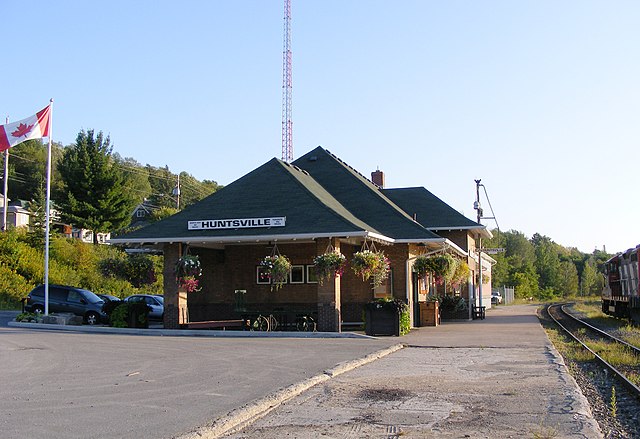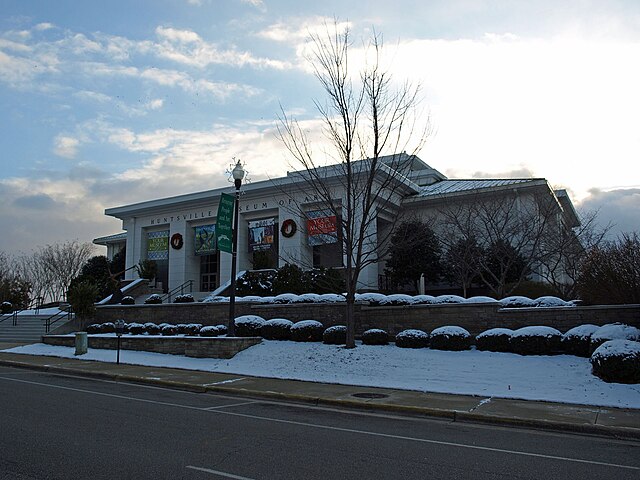Ever wondered what it’s like to experience the weather in Huntsville, Alabama? Known as the Rocket City, Huntsville is a vibrant hub of innovation nestled in the heart of the Tennessee Valley. But beyond its space exploration legacy, the city’s climate tells a story of its own. From humid summers to mild winters, Huntsville’s weather is as dynamic as its culture. Let’s dive into what makes Huntsville’s weather unique, why it matters, and how you can make the most of it, whether you’re a resident or just passing through. Buckle up—this is your ultimate guide to Huntsville, AL weather!
Why Huntsville’s Weather Matters
Weather shapes our daily lives more than we often realize. In Huntsville, it influences everything from outdoor adventures at Monte Sano State Park to planning events at the U.S. Space & Rocket Center. Understanding the local climate helps you prepare for the day, whether it’s grabbing an umbrella or slathering on sunscreen. Plus, Huntsville’s weather plays a role in the city’s economy, agriculture, and even its appeal to newcomers. So, why should you care? Because knowing what to expect from the skies can make your time in Huntsville that much more enjoyable.
A Quick Overview of Huntsville’s Climate
Huntsville boasts a humid subtropical climate, which means you get four distinct seasons, each with its own personality. Summers are hot and sticky, winters are generally mild, and spring and fall serve as delightful transitions. The city sits at about 600 feet above sea level, surrounded by rolling hills and the Tennessee River, which can influence local weather patterns. Expect a mix of sunny days, occasional storms, and a touch of Southern humidity that keeps things interesting.
Breaking Down Huntsville’s Seasons

Each season in Huntsville paints the city in a different light. Let’s take a closer look at what you can expect throughout the year, so you’re never caught off guard by Mother Nature.
Spring: A Burst of Color and Showers
Spring in Huntsville, from March to May, is like waking up from a long nap. Temperatures climb from the 50s to the 70s, and the city blooms with azaleas and dogwoods. But don’t leave your raincoat at home—spring brings frequent showers and occasional thunderstorms. March can be unpredictable, with chilly days giving way to warm afternoons. By May, you’re flirting with summer-like heat. It’s the perfect time for hiking or visiting the Huntsville Botanical Garden, but keep an eye on the radar for pop-up storms.
Tips for Enjoying Spring Weather
Wear layers to handle temperature swings, and invest in a good pair of waterproof shoes. Spring is ideal for outdoor festivals, like Panoply Arts Festival, but always have a backup plan for rain. Check local weather apps like Weather Underground for real-time updates to stay ahead of those April showers.
Summer: Hot, Humid, and Full of Fun
June through August in Huntsville is a scorcher. Daytime highs often hit the 90s, with humidity making it feel like you’re walking through a warm blanket. Heat indices can soar above 100°F, especially in July. Thunderstorms are common in the afternoons, offering brief relief from the heat. Despite the sweat, summer is prime time for outdoor concerts, farmers’ markets, and cooling off at Ditto Landing along the Tennessee River.
Beating the Summer Heat
Stay hydrated and seek shade during the hottest parts of the day, typically from noon to 4 p.m. Light, breathable clothing is your best friend. If you’re exploring Huntsville, indoor attractions like the Huntsville Museum of Art or the EarlyWorks Children’s Museum offer a cool escape. And don’t forget sunscreen—UV rays don’t mess around in Alabama.
Fall: Crisp Air and Vibrant Foliage
Fall, from September to November, is Huntsville’s golden season. Temperatures drop from the 80s to the 60s, and humidity takes a backseat. The leaves on Monte Sano Mountain turn brilliant shades of red, orange, and yellow, making it a hiker’s paradise. October is particularly pleasant, with clear skies and highs in the 70s. Fall also brings festivals like the Alabama Cotton Festival and lower chances of rain compared to spring.
Making the Most of Fall
Pack a light jacket for cooler evenings, especially in November. Fall is perfect for stargazing at the Von Braun Planetarium or sipping craft brews at local breweries like Yellowhammer Brewing. Check the National Weather Service for frost advisories as the season progresses, especially if you’re gardening or planning outdoor events.
Winter: Mild with a Hint of Chill

Huntsville’s winters, from December to February, are relatively tame compared to northern states. Daytime highs range from the 40s to 50s, with nighttime lows occasionally dipping into the 20s. Snow is rare, but when it happens, the city grinds to a halt—think of it as a charming Southern snow day. Ice storms are a bigger concern, though they’re infrequent. Winter is a great time for indoor activities like exploring the Lowe Mill ARTS & Entertainment complex.
Preparing for Winter Weather
Keep a warm coat and gloves handy for chilly mornings. If you’re driving, watch for icy patches on bridges and overpasses. Winter is also flu season, so stay healthy by washing hands and avoiding crowded indoor spaces when possible. For weather updates, follow @NWSHuntsville on X for real-time alerts.
Huntsville’s Weather Patterns and Phenomena
Beyond the seasons, Huntsville’s weather has some quirks worth knowing about. From tornado risks to humidity’s role, let’s unpack the forces shaping the Rocket City’s skies.
Tornado Season: Staying Safe
Alabama is part of “Dixie Alley,” a region prone to tornadoes, especially in spring and fall. Huntsville sees its share of severe weather, with peak tornado activity in April and November. While major tornadoes are rare, the 2011 Super Outbreak left a lasting impact on the area. Modern forecasting and early warning systems have improved safety, but preparation is key. Have a tornado plan, know your safe place, and invest in a NOAA weather radio.
Humidity: The Silent Player
Humidity is Huntsville’s not-so-secret ingredient. It amplifies summer heat and makes winters feel colder than the thermometer suggests. High humidity also fuels thunderstorms and contributes to lush greenery across the city. Embrace it by staying hydrated and using dehumidifiers indoors to keep your home comfortable.
Microclimates: The Local Twist
Huntsville’s terrain creates microclimates—small-scale weather variations. For example, Monte Sano Mountain is often cooler than downtown, and areas near the Tennessee River may see more fog. These subtle differences can affect your plans, especially if you’re biking or gardening. Local weather stations, like those at Huntsville International Airport, provide hyper-local data to keep you informed.
How Weather Impacts Huntsville’s Lifestyle
Huntsville’s weather isn’t just a backdrop—it’s part of the city’s DNA. From outdoor recreation to economic growth, the climate shapes how people live, work, and play.
Outdoor Adventures Year-Round
With mild winters and long summers, Huntsville is an outdoor lover’s dream. Trails at Green Mountain and Wade Mountain beckon hikers, while kayaking on the Flint River is a summer favorite. Spring and fall are ideal for cycling along the city’s greenways. Weather dictates the best times for these activities, so plan around cooler mornings or drier days to maximize fun.
Agriculture and Local Economy
Huntsville’s climate supports a thriving agricultural scene. Local farms produce everything from peaches to pumpkins, with markets like the Madison County Farmers Market bustling year-round. However, severe weather like droughts or storms can challenge farmers. The city’s tech-driven economy, tied to NASA and Redstone Arsenal, is less weather-dependent but still benefits from Huntsville’s livable climate, attracting talent and businesses.

Ready to tackle Huntsville’s weather with confidence? Here are practical tips to keep you comfortable and prepared, no matter what the forecast says.
Stay Informed with Trusted Sources
Knowledge is power when it comes to weather. Bookmark sites like the National Weather Service (weather.gov) or Weather Underground (wunderground.com) for accurate forecasts. For real-time updates, follow @NWSHuntsville on X, where posts like their June 2025 storm alerts keep locals in the loop. Apps like AccuWeather also offer detailed radar and severe weather notifications.
Build a Weather-Ready Wardrobe
Huntsville’s climate demands versatility. Invest in breathable fabrics for summer, waterproof gear for spring, and layers for fall and winter. A sturdy umbrella and sunglasses are year-round essentials. Think of your wardrobe like a Swiss Army knife—ready for anything the weather throws your way.
Plan Around the Forecast
Whether you’re hosting a barbecue or hiking Burritt on the Mountain, check the forecast a few days ahead. Summer storms often pop up in the afternoon, so schedule outdoor activities for mornings. In winter, watch for rare freezing rain that can slick up roads. Flexibility is your friend in Huntsville’s ever-changing weather.
Weather and Huntsville’s Future
As climate patterns shift globally, Huntsville’s weather may evolve too. Rising temperatures and more intense storms are possibilities, but the city is adapting. Green initiatives, like urban tree planting and sustainable development, aim to keep Huntsville resilient. Community efforts, such as storm preparedness programs, ensure residents are ready for whatever comes next.
Embracing Change with Optimism
Change can be daunting, but Huntsville’s spirit of innovation shines here too. By staying informed and proactive, the Rocket City can navigate future weather challenges while preserving its charm. Think of it like upgrading a spaceship—tweaking systems to soar even higher.
Conclusion: Embrace Huntsville’s Weather
Huntsville, AL weather is a mix of Southern charm and unpredictable flair. From steamy summers to crisp fall days, the Rocket City’s climate offers something for everyone. By understanding its patterns, preparing for its quirks, and embracing its beauty, you can make every day in Huntsville an adventure. Whether you’re chasing sunsets on Monte Sano or dodging raindrops downtown, the weather is part of what makes this city special. So, grab your sunglasses, keep an umbrella handy, and dive into the Rocket City’s skies with confidence!
Frequently Asked Questions (FAQs)
1. What is the best time of year to visit Huntsville, AL?
Fall (September to November) is ideal, with mild temperatures, low humidity, and stunning foliage. Spring is also great but comes with more rain.
2. Does Huntsville get a lot of snow?
Snow is rare, with maybe one or two light dustings a year. Ice storms are a bigger concern, though they’re infrequent.
3. How can I stay safe during Huntsville’s tornado season?
Have a tornado plan, identify a safe place in your home, and monitor alerts from the National Weather Service or local news. A weather radio is a smart investment.
4. What should I wear in Huntsville’s summer?
Opt for lightweight, breathable clothing, hats, and sunglasses. Don’t forget sunscreen and a water bottle to stay cool and hydrated.
5. Are there indoor activities in Huntsville for bad weather days?
Absolutely! Check out the U.S. Space & Rocket Center, Huntsville Museum of Art, or Lowe Mill ARTS & Entertainment for fun, rain-or-shine options.

